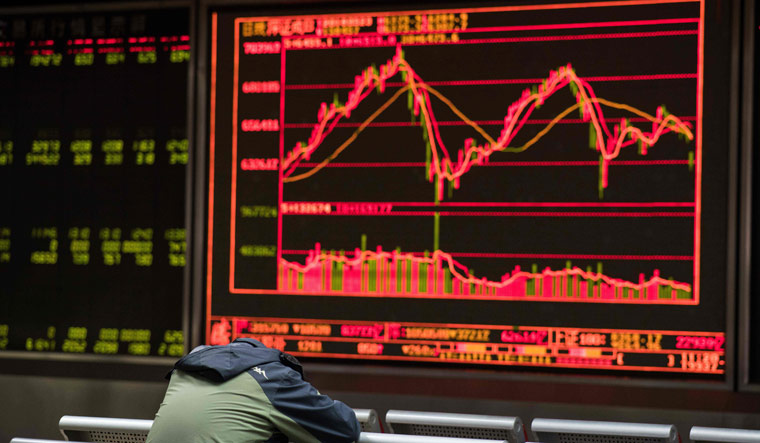Most Asian markets opened in red on Monday as fresh Chinese and US tariffs on goods worth hundreds of billions of dollars kicked in from Sunday.
Tokyo ended the morning session 0.2 per cent lower, Sydney and Singapore each shed 0.6 per cent, Taipei was off 0.1 per cent and Seoul was marginally lower. But Shanghai rose 0.7 per cent after a better-than-expected reading on Chinese factory activity, though investors remain uncertain about the outlook as the trade war bites deeper.
In India, markets are closed on account of Ganesh Chaturthi.
The E-mini futures for US S&P500 fell as much as 1.06 per cent in early trade and last stood down 0.39 per cent, while US Treasuries futures prices rose a tad.
Hong Kong sank after a weekend that saw some of the worst violence since protests began three months ago, with the airport targeted again, and demonstrators have called for a general strike on Monday.
Washington slapped 15 per cent tariffs on a variety of Chinese goods on Sunday, including footwear, smart watches and flat-panel televisions, while Beijing imposed new duties on US crude, the latest escalation in a bruising trade war. The measures are the latest in the long-running trade war between the world's top two economies, which has rattled global markets and hitting growth across the planet, though Donald Trump reiterated that the two sides were still due to holds talks this month. "We are talking to China, the meeting is still on," he told reporters.
However, analysts warned there was unlikely to be any end in the near term. "There is a long way to go," said Shane Oliver, head of investment strategy at AMP Capital Investors. "Share markets may still have to fall further to pressure Trump to resolve the issue."
Meanwhile, Hong Kong was also being weighed by another weekend of violence, fuelling worries about possible Chinese intervention in the financial hub, while the unrest has also hit property firms and Macau's casinos. The unrest has dragged a range of sectors, with tourist numbers tumbling, hitting casinos and hotel chains, while real estate shares are also being sold off.
"Markets are fretting on the increased likelihood of direct Chinese intervention and what that would mean for the future of one of Asia's leading financial centres," said Jeffrey Halley, senior market analyst for Asia-Pacific at OANDA.
Oil prices extended Friday's steep losses owing to worries about the impact of the trade war on demand, while dealers were also concerned about reports that the Russian output cut last month fell short of an agreement with OPEC.


